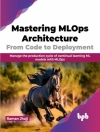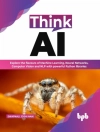Formal methods for development of computer systems have been extensively studied over the years. A range of semantic theories, speci?cation languages, design techniques, and veri?cation methods and tools have been developed and applied to the construction of programs used in critical applications. The ch- lenge now is to scale up formal methods and integrate them into engineering – velopment processes for the correct and e?cient construction and maintenance of computer systems in general. This requires us to improve the state of the art on approaches and techniques for integration of formal methods into industrial engineering practice, including new and emerging practice. The now long-established series of International Conferences on Formal – gineering Methods brings together those interested in the application of formal engineering methods to computer systems. Researchers and practitioners, from industry, academia, and government, are encouraged to attend and to help – vance the state of the art. This volume contains the papers presented at ICFEM 2009, the 11th International Conference on Formal Engineering Methods, held during December 9–11, in Rio de Janeiro, Brazil.
Daftar Isi
Invited Papers.- Seamless Model Driven Systems Engineering Based on Formal Models.- Compositional Verification of Input-Output Conformance via CSP Refinement Checking.- Testing I.- Symbolic Query Exploration.- Event Listener Analysis and Symbolic Execution for Testing GUI Applications.- An Empirical Study of Structural Constraint Solving Techniques.- Protocols.- Improving Automatic Verification of Security Protocols with XOR.- Modeling and Verification of Privacy Enhancing Protocols.- Role-Based Symmetry Reduction of Fault-Tolerant Distributed Protocols with Language Support.- Testing II.- Implementing and Applying the Stocks-Carrington Framework for Model-Based Testing.- A Statistical Approach to Test Stochastic and Probabilistic Systems.- Qualitative Action Systems.- Verification.- RAFFS: Model Checking a Robust Abstract Flash File Store.- European Train Control System: A Case Study in Formal Verification.- Development of Security Software: A High Assurance Methodology.- Model Checking I.- Bounded Semantics of CTL and SAT-Based Verification.- Graded-CTL: Satisfiability and Symbolic Model Checking.- Approximate Model Checking of PCTL Involving Unbounded Path Properties.- Object-Orientation.- A Graph-Based Operational Semantics of OO Programs.- Modeling and Analysis of Thread-Pools in an Industrial Communication Platform.- A Verification System for Distributed Objects with Asynchronous Method Calls.- Model checking II.- A Time-Optimal On-the-Fly Parallel Algorithm for Model Checking of Weak LTL Properties.- Scalable Multi-core Model Checking Fairness Enhanced Systems.- Combining Static Model Checking with Dynamic Enforcement Using the Statecall Policy Language.- Event-B.- Supporting Reuse of Event-B Developments through Generic Instantiation.- A Lazy Unbounded Model Checker for Event-B.- Proof Assisted Model Checking for B.- Compilation.- Machine-Checked Sequencer for Critical Embedded Code Generator.- Implementing a Direct Method for Certificate Translation.- Process Algebra.- Algorithmic Verification with Multiple and Nested Parameters.- Verifying Stateful Timed CSP Using Implicit Clocks and Zone Abstraction.- Refinement.- Modal Systems: Specification, Refinement and Realisation.- Refinement-Preserving Co-evolution.- Algebraic Specifications.- Circular Coinduction with Special Contexts.- The VSE Refinement Method in Hets.- Real-Time Systems.- A Compositional Approach on Modal Specifications for Timed Systems.- An Efficient Translation of Timed-Arc Petri Nets to Networks of Timed Automata.- Verifying Ptolemy II Discrete-Event Models Using Real-Time Maude.- Specifying and Verifying Business Processes Using PPML.












